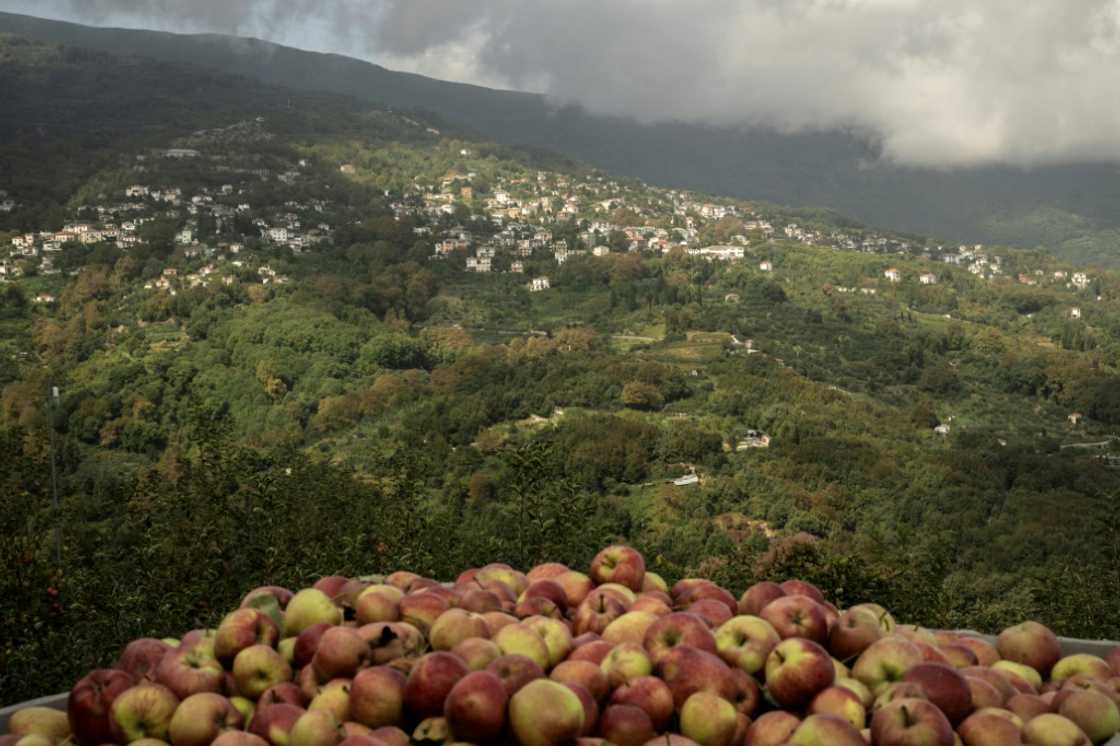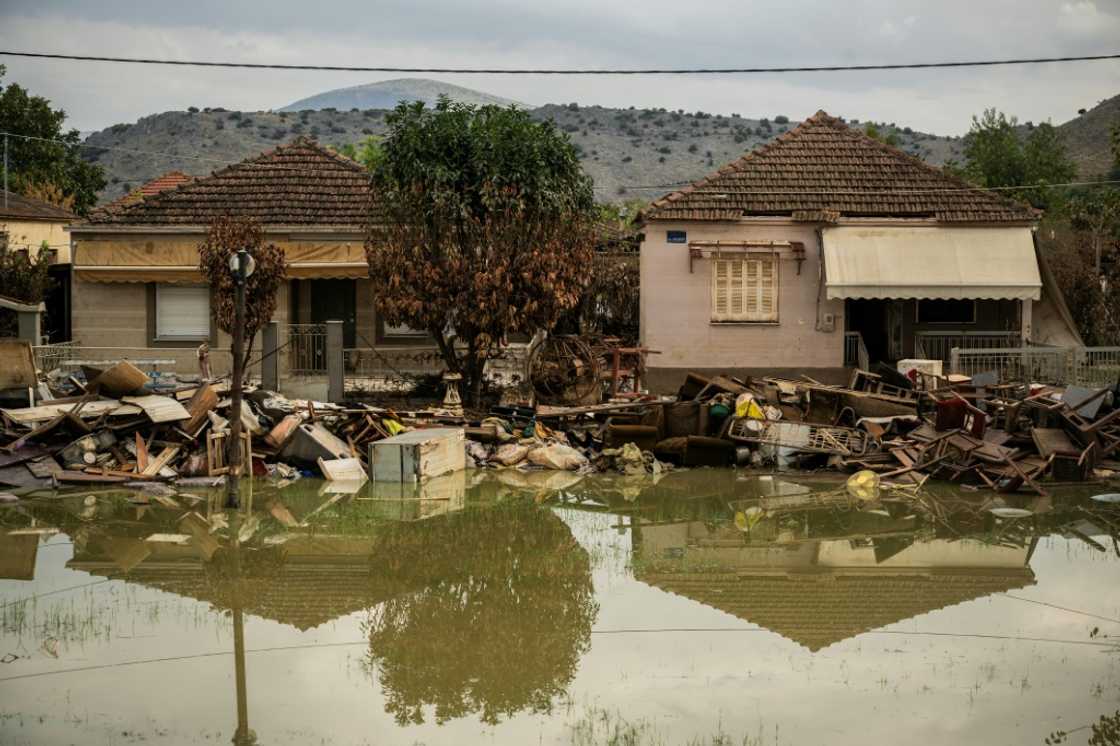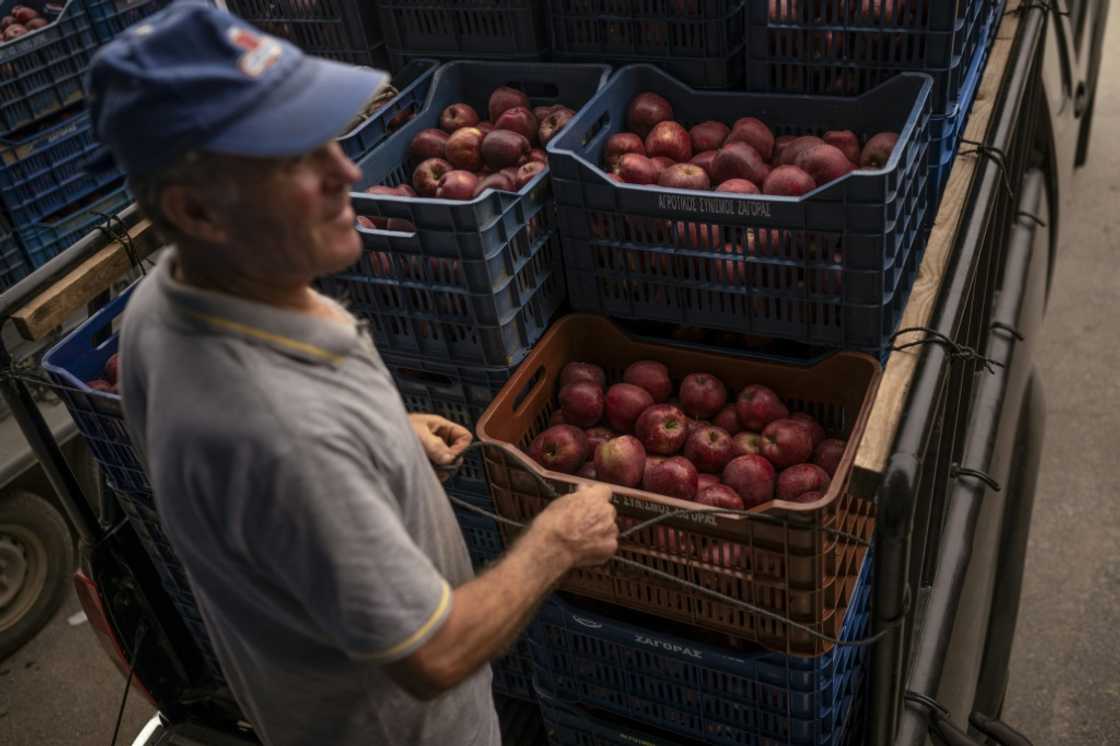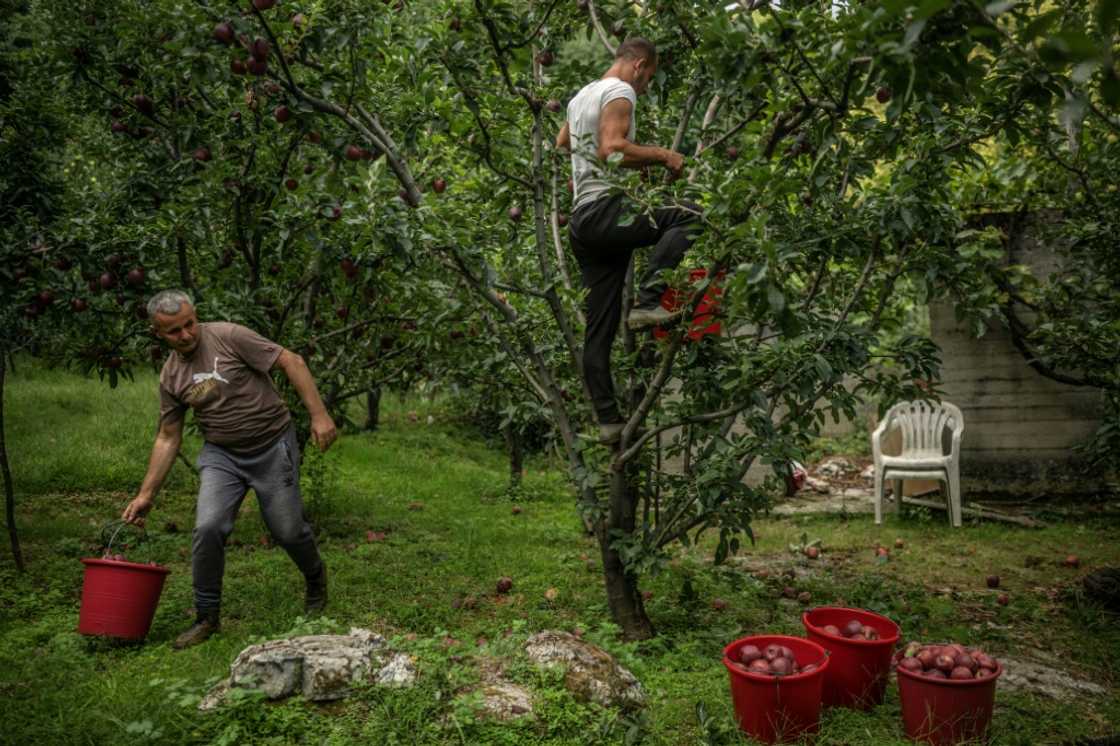'Zero income' after storms ravage famed Greek apple harvest

Source: AFP
PAY ATTENTION: Be the first to follow YEN.com.gh on Threads! Click here!
Engine revving, Greek apple farmer Thymios Economou strains to drive a pickup truck through a rock-strewn dirt road and reach his flood-stricken orchard.
After a while, the vehicle becomes stuck. Economou points to the hillside above, 500 metres (yards) high, eaten into by Storm Daniel that struck central Greece this month.
"There used to be an apple orchard there. All the trees were carried away by the flood," the 53-year-old tells AFP.
"Some people will not be able to reach their fields at all. They will get zero income this year," Economou adds.
The deluge caused by Storm Daniel three weeks ago, unleashing months' worth of rain in just hours, destroyed roads and bridges, drowned tens of thousands of farm animals and left 17 people dead.
"I lost 100 trees at one of my farms," says Antonis Laskos, 62.
PAY ATTENTION: Сheck out news that is picked exactly for YOU ➡️ click on “Recommended for you” and enjoy!
"They were uprooted and ended up in the sea."

Source: AFP
Zagora is Greece's apple powerhouse, with a farm cooperative that dates to 1916. Some 800 families have built their lives on the fruit.
The area's Zagorin apples -- a Starking Delicious variety introduced from California in the early 1950s -- have since 1996 carried a protected European designation of origin label.
The villagers of Zagora, the area which produces some of Greece's finest apples, say up to 80 percent of the local road network has been knocked out and will not be easy to replace.
And even the surviving crop is hard to bring in, as the only bridge left standing in the area cannot sustain the 45-ton trucks normally used for transport, according to cooperative head Yiannis Kravvaris.
"Smaller trucks will have to be used, and this will push up costs significantly," he notes.
'Impossible to fix everything'
"There are rebuilding efforts but the damage is so extensive that it's impossible to fix everything," says Ioulia Papoulia, an agronomist in charge of quality control at the Zagorin farm co-operative.

Source: AFP
"Last year we had 18.5 million apples. This year we'll be lucky to get five million kilos," she says.
The Athens Observatory put Zagora at the epicentre of the storm.
From September 4-8, the observatory recorded 1,096 millimetres of rain -- including over 750 millimetres on September 5.
The average rainfall in the area is 150 millimetres. The previous maximum in Zagora was 231 millimetres in 2018.
This week, another storm named Elias dumped an additional 96 millimetres of water.
Harvester Costas Zervas, 50, says this year's apple crop was already problematic owing to climate change.
"We had frequent rain in June that caused disease.
"And the winter was mild. Apple trees need the cold, from 800 to 1,600 hours of frost annually," Zervas explains.

Source: AFP
Facing a barrage of criticism at a perceived failure in cooperation between the army and civil protection in the hours following the disaster, the government has pledged over two billion euros ($2.1 billion) in reconstruction funds.
Prime Minister Kyriakos Mitsotakis, who comfortably won re-election and a second four-year term in June, has warned Greece is facing a "climate war".
"Over a two-week period, we experienced the worst wildfire and the worst floods in our history," Mitsotakis said this month.
Fires across Greece killed at least 26 people this summer, most of them migrants trapped in a forest near the northeastern border with Turkey.
A massive blaze in the Dadia National Park in northeastern Greece that burned for over two weeks was later described by the European Commission as the largest on record in Europe.
New feature: Сheck out news that is picked for YOU ➡️ click on “Recommended for you” and enjoy!
Source: AFP




